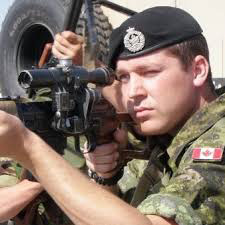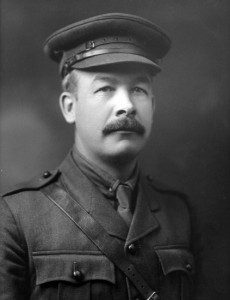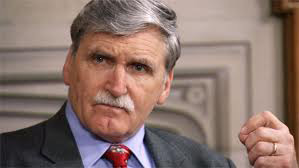
At 22, Tim Laidler didn’t have a worry in the world. As a reservist in the 2nd Battalion of Princess Patricia’s Canadian Light Infantry in 2008, he felt confident he could accomplish his eight-month commitment in Afghanistan – guarding supply convoys in Kandahar Province.
This particular day, however, Cpl. Laidler had been assigned an additional task, guarding the gate at Kandahar Airfield. A civilian ambulance approached. He opened its doors for a routine check and was suddenly faced by an Afghan girl of 16. She’d apparently been forced into an arranged marriage and felt her only way out was to set herself on fire, to be saved by the Canadians, or die by her own hand. She died.
“What had the global community come to, that a young girl had resorted to kill herself in front of me?” Laidler asked himself. “I suddenly felt myself disconnect. I felt myself die inside.”
Nearly 30 now and a survivor of post traumatic stress disorder, Laidler spoke to an audience of MPs, senators, active and retired soldiers, and a number of invited guests (myself included) on Tuesday. The 1st Annual Sam Sharpe Breakfast (exploring Veterans’ Mental Health and Wellness) was arranged by Durham MP Erin O’Toole and co-hosted by retired Gen. Romeo Dallaire, now a Canadian senator.
As MP O’Toole described it, the gathering over a breakfast in the Centre Block on Parliament Hill was designed to bring together key advocates trying to help Canadian veterans coping with operational stress injuries (OSI). O’Toole explained that he organized the event in honour of one of the original sufferers of PTSD.

“Col. Sam Sharpe was a Member of Parliament (for Ontario North) who served on the battlefields of the First World War,” O’Toole said last week in the Commons, “before returning to Canada where he took his life struggling with his mental injuries.”
Unlike Uxbridge’s own Col. Sharpe, Tim Laidler found help before harming himself. A former comrade-in-arms recommended he participate in the Veterans’ Transition Program, a research initiative at the University of British Columbia, connecting veterans with other veterans struggling with OSI. At first, Laidler said he resisted saying he didn’t need counsellors telling him what to do. But he learned to open up to his peers and that in turn opened up a brand new career.
“Otherwise,” he said, “I’d have gone off to a little corner of the country and disappeared.”
Laidler is now a Masters student at UBC as well as executive director of the resulting Veterans’ Transition Network. He explained that VTN all started with about a dozen guys in 1999, and has grown to about 400 volunteers whose goal is to launch similar programs across the country by 2015 allowing VTN to one day assist 150 veterans a year. Through his own story, Laidler emphasized that help had come from his community, from his buddies, from his family, but not from either the local or national offices of Veterans’ Affairs Canada.
Laudable for community, I thought, but not for the federal government or its civil service whose job is to help the veterans constituency. Indeed, VAC via the government’s current Veterans’ Charter has in some cases paid veterans lump sums to eliminate them from being a long-term drain on federal pension budgets.

Co-chairing the information breakfast with O’Toole this week, Senator Romeo Dallaire offered his own take on the growing PTSD problem. In 1994, Gen. Dallaire had commanded the United Nations assistance mission in Rwanda. The genocide he witnessed in the African nation became the subject of his 2003 non-fiction book Shake Hands with the Devil: The Failure of Humanity in Rwanda. The resulting PTSD had forced Dallaire’s release from the Canadian Forces in 2000, when he turned to lecturing and conducting research on conflict resolution.
During the Tuesday morning session, Dallaire lamented that despite the end of the Afghanistan operation last year, Canada “is still taking casualties. Not just the walking wounded,” he said, “but those taking their own lives.”
I asked Dallaire about the elephant in the room at Tuesday’s Sam Sharpe Breakfast. Why wasn’t the body most responsible for veterans’ welfare, Veterans’ Affairs Canada, present and accounted for at the breakfast?
“Canada’s veterans are an unlimited liability… and (caring for them) is a lifelong covenant,” he said.
“What about the Veterans’ Charter?” I asked. “Isn’t paying veterans lump sums instead of living up to that unlimited liability, cutting them out of the system, violating the covenant.”
“We can’t talk about the charter,” he rationalized. “It’s still before Parliament.”
It appears, nearly 100 years after the Ontario Regiment was decimated at Passchendaele, Belgium, sparking Col. Sam Sharpe to take his own life in 1918, that just like it was back in the Uxbridge colonel’s day, the fate of Canada’s veterans lies more in the hands of family, community and fellow soldiers than it does in Veterans’ Affairs Canada, the body most responsible to service that unlimited liability.